Top 10 Health Benefits of Apples
It's no wonder that apples are the most commonly eaten fruit in the world, with over 7,000 different cultivars available. Pies, cookies, muffins, jam, salads, ... read more...oatmeal, and smoothies are all common uses for them. They're also delicious on their own or wedged and smeared with nut butter as a snack. In addition to its culinary versatility and variety of colors and flavors, apples are an exceptionally nutritious fruit with many research-backed benefits. Let's find out some of the Health Benefits of Apples below!
-
Apples are nutrient-dense fruits, which means that they contain a lot of nutrients per serving. For a 2,000-calorie diet, the current Dietary Guidelines for Americans recommend 2 cups of fruit per day, with whole fruits like apples being recommended. The nutrients in one medium 7-ounce (200-gram) apple are as follows:
- Calories: 104
- Carbs: 28 grams
- Fiber: 5 grams
- Vitamin C: 10% of the Daily Value (DV)
- Copper: 6% of the DV
- Potassium: 5% of the DV
- Vitamin K: 4% of the DV
Vitamins E, B1, and B6 offer 2–5% of the daily value in the same serving. Vitamin E is a fat-soluble antioxidant, vitamin B1 (thiamine) is required for growth and development, and vitamin B6 is needed for protein metabolism. Apples are also high in polyphenols, which are a type of antioxidant. Antioxidants are molecules that protect your cells from free radicals, which are harmful molecules that can lead to chronic diseases like heart disease and cancer. Leave the peel on apples if you want to get the maximum fiber and polyphenols out of them.
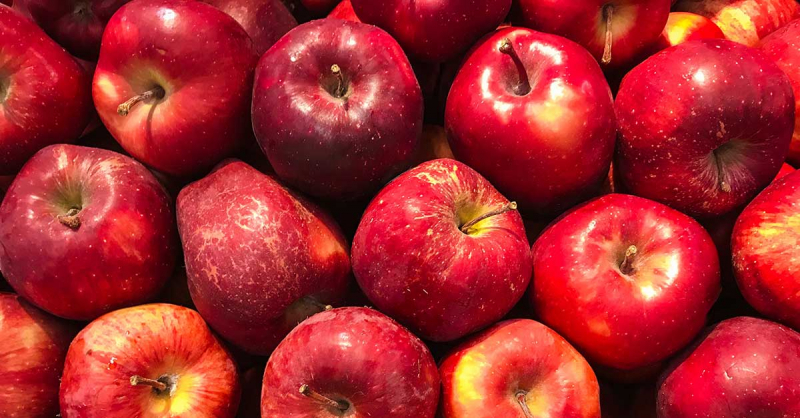
Nutritious 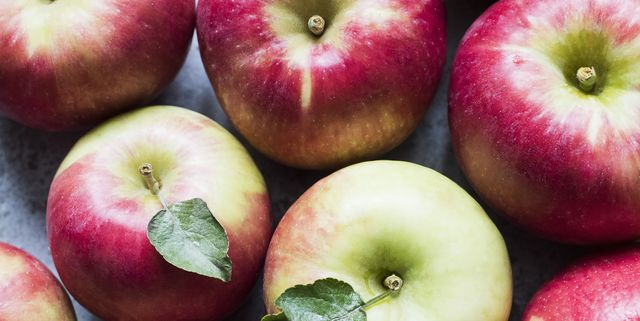
Nutritious -
Apples are high in fiber and water, both of which contribute to their filling properties. In fact, water makes up around 86% of a medium-sized apple. Water-rich foods are filling, which means fewer calories are consumed. Increased fullness is a weight-loss strategy because it helps you control your hunger. As a result, you may find yourself using less energy.
Eating whole apples boosted feelings of fullness for up to 4 hours longer than eating apple purée or juice, according to one research. Because whole apples slow down gastric emptying (the rate at which your stomach empties its contents). Apple intake has also been shown to lower BMI, a weight-related risk factor for heart disease, according to research. Apple polyphenols may also have anti-obesity effects.
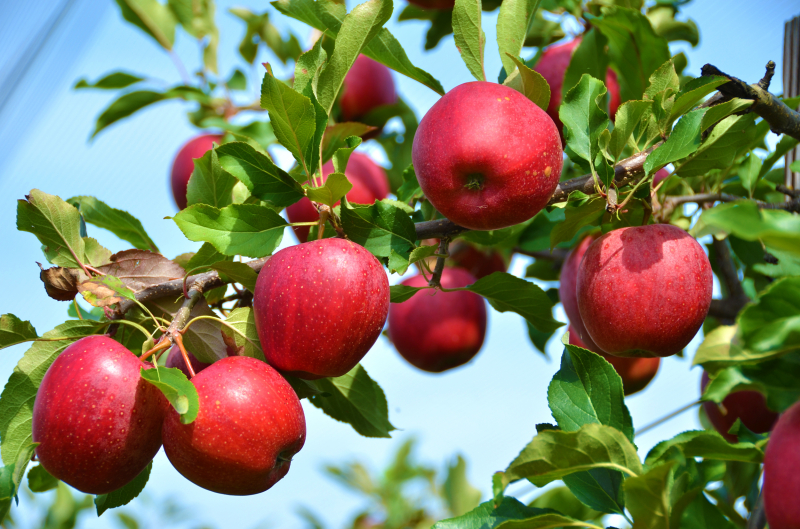
Support weight loss 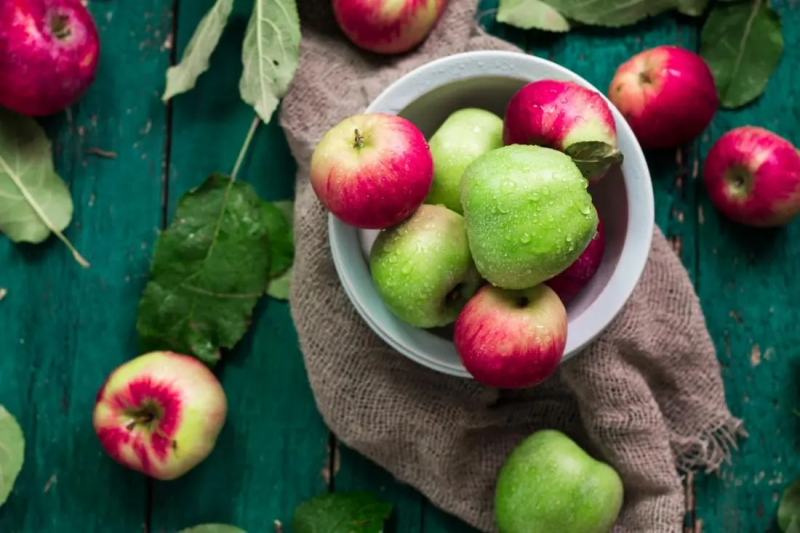
Support weight loss -
Apples are good for your heart in a variety of ways. Eating an apple or two each day may reduce heart disease risk factors, a study shows.
The intake of apples has been related to a reduced risk of heart disease. One potential reason is that they contain soluble fiber. This type of fiber can aid in the reduction of blood cholesterol levels. Another reason might be because polyphenols are available. Some of them, such as the flavonoid epicatechin, have been shown to reduce blood pressure. Flavonoids have also been associated with a lower risk of stroke in studies. Furthermore, flavonoids can help prevent heart disease by lowering blood pressure, lowering LDL cholesterol oxidation, and lowering atherosclerosis, or plaque buildup in the arteries. Another study found that eating white-fleshed fruits and vegetables such as apples and pears lowers the risk of stroke. For every 1/5 cup (25 grams) of apple slices consumed per day, the risk of stroke decreased by 9%.
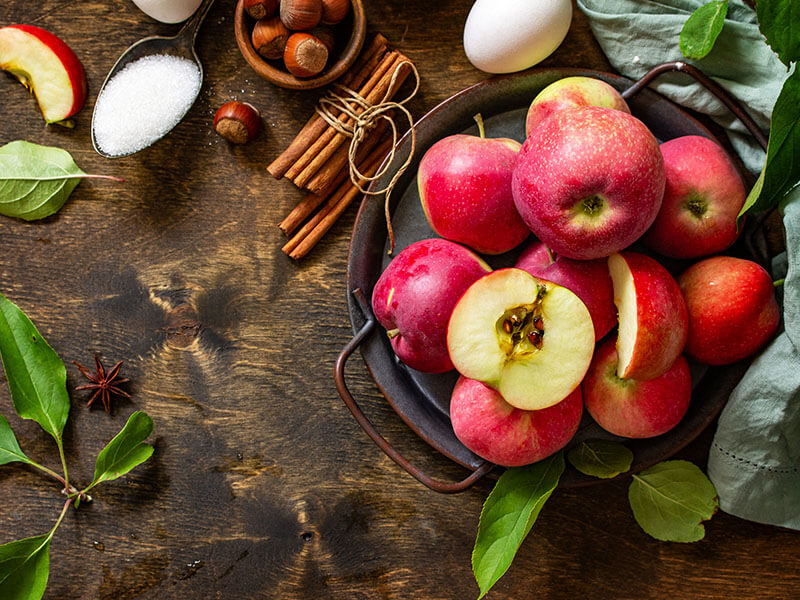
Food for your heart 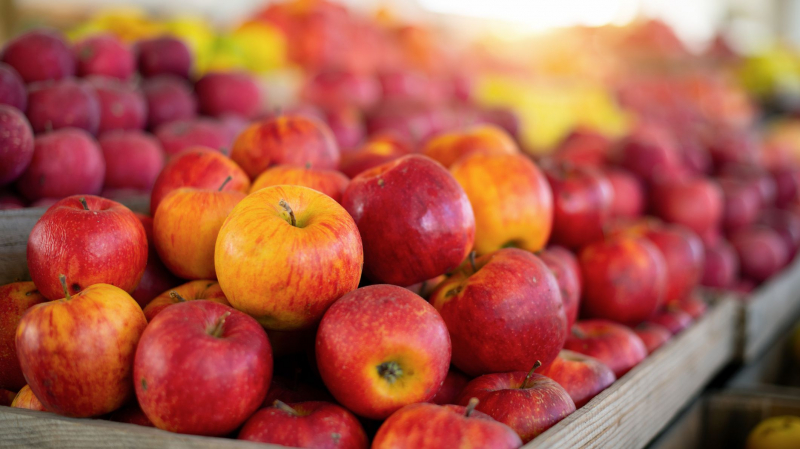
Food for your heart -
Apple consumption has been linked to a decreased risk of diabetes in several studies. According to a review of research published in 2019, consuming apples and pears is linked to a lower risk of cardiovascular disease and type 2 diabetes.
A review of research indicated that consuming apples and pears reduced the chance of developing type 2 diabetes by 18%. In fact, just one serving every week might lower your risk by 3%. This positive impact might be explained by their high level of the antioxidant polyphenols quercetin and phloridzin. The anti-inflammatory properties of quercetin may help to lower insulin resistance, which is the main risk factor for diabetes. Meanwhile, phloridzin is thought to inhibit sugar uptake in the intestines, resulting in lower blood sugar levels and thus a lower risk of diabetes.

Linked to a lower risk of diabetes 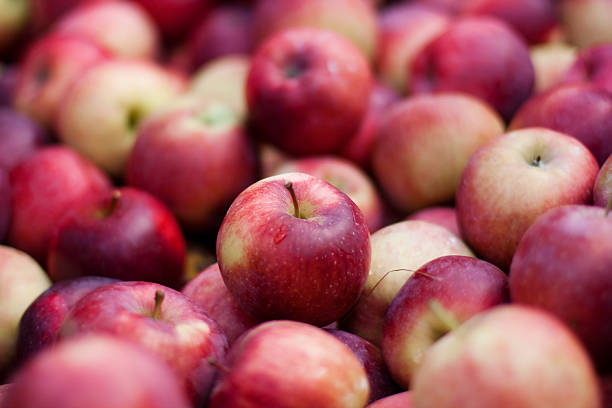
Linked to a lower risk of diabetes -
Within the gut (AKA the gastrointestinal tract) live trillions of bacteria, good and bad, which all together make up the microbiome. Pectin, a type of fiber that works as a prebiotic, is found in apples. This indicates it feeds your gut microbiota, which is made up of good bacteria.
Your gut microbiota plays an important role in your overall health and well-being since it is involved in numerous activities related to health and disease. A healthy gut is necessary for good health. Because dietary fiber cannot be digested, pectin reaches your colon intact, allowing healthy bacteria to thrive. It improves the Bacteriodetes to Firmicutes ratio, which is one of the most important bacteria ratios in the gut. According to a new study, apples may help protect against chronic diseases such as obesity, type 2 diabetes, heart disease, and cancer by altering your gut microbiota in a good way.
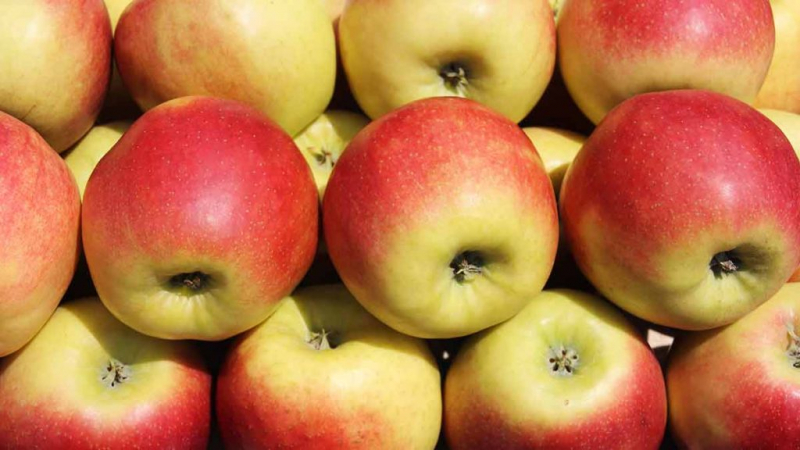
Promote gut health 
Promote gut health -
Apples include antioxidants that may help prevent cancers such as lung and digestive tract cancers. Observational population studies also link apples with a lower risk of the estrogen receptor-negative (ER-) form of breast cancer.
These effects may be linked to apple polyphenols, which prevent cancerous cells from growing in test tubes. Furthermore, increased apple intake was connected to a decreased risk of cancer death in one research of women. The fiber content of apples may potentially play a role in their cancer-fighting properties. Another test-tube study discovered that apple pectin fiber can slow the development of cancerous cells and even cause them to die. However, the more human study is needed to better understand the possible link between apples and cancer prevention, such as how much to eat and when to eat it.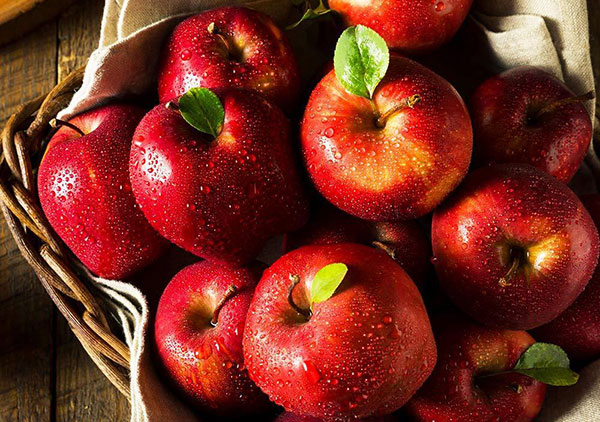
Help prevent cancer 
Help prevent cancer -
Childhood asthma is on the rise in the United States, and researchers say the results suggest that eating more apples while pregnant may help prevent children from the disease. Apples are high in antioxidants, which may help protect your lungs from oxidative damage.
Oxidative damage is caused by an excess of harmful molecules known as free radicals. This may cause your body to react in an inflammatory and allergic manner. The antioxidant quercetin found in apple peel can help regulate your immune system and prevent inflammation. This may theoretically make apples helpful in the late stages of bronchial asthma responses. Quercetin may be good therapy for allergic inflammatory disorders including asthma and sinusitis, according to test-tube and animal research. Other compounds in apples, such as proanthocyanidins, may also help to lessen or prevent allergic asthma airway inflammation. However, more human study on the subject is still required.
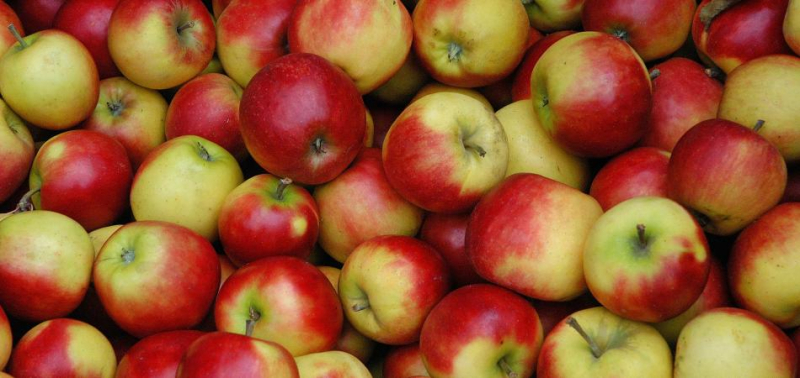
Help fight asthma 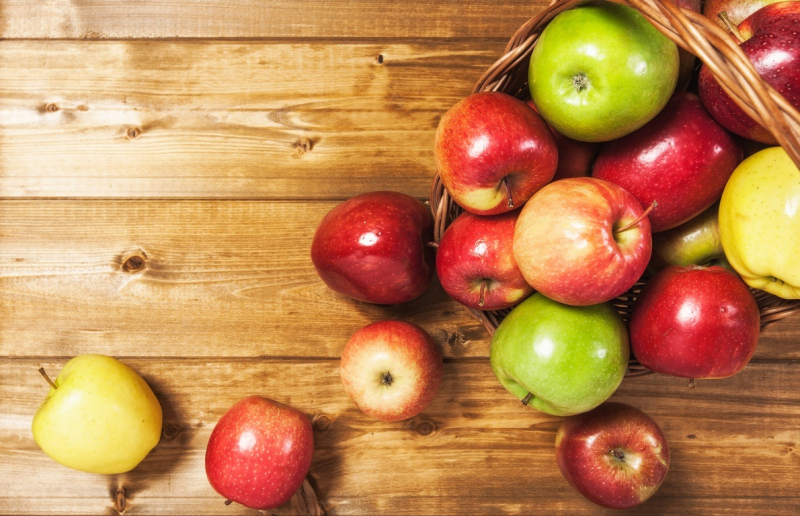
Help fight asthma -
Apples include quercetin, an antioxidant plant chemical that keeps your mental juices flowing by protecting your brain cells. According to Cornell University researchers, quercetin protects your brain cells from free radical attacks, which can damage the delicate outer covering of neurons and contribute to cognitive decline.
The antioxidant effects of quercetin have been shown in rats to protect the brain and nerves from oxidative damage and to prevent injuries that can lead to degenerative brain diseases such as Alzheimer's disease and dementia. Quercetin may also protect nerves from stress-related nerve damage by regulating oxidative and inflammatory stress markers. However, keep in mind that the majority of studies focus on a particular compound rather than whole apples. As a result, further study is required before any conclusions can be reached.
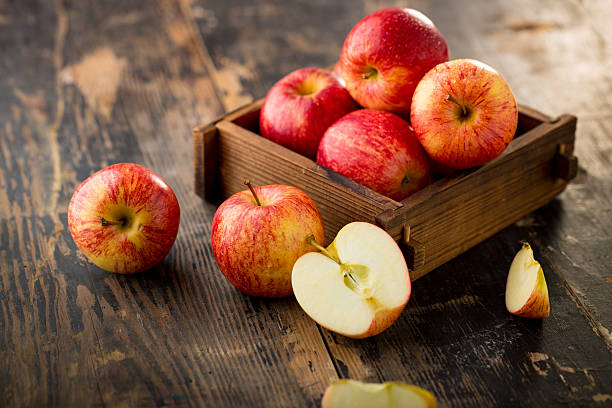
Help protect your brain 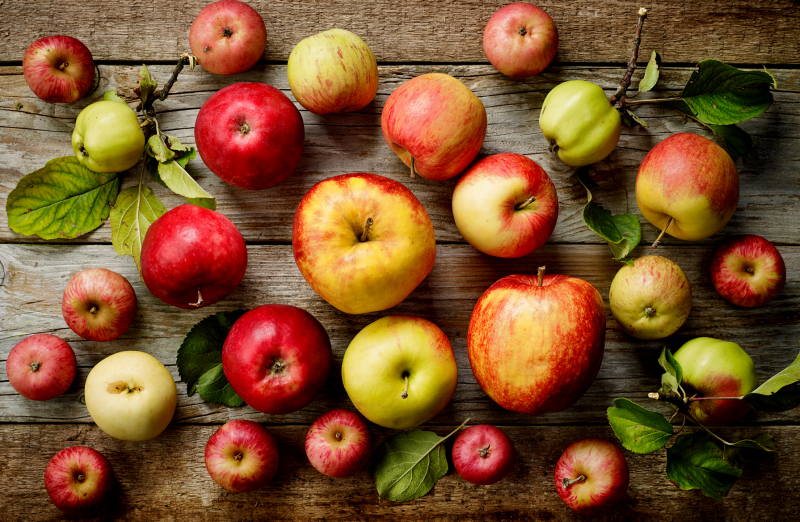
Help protect your brain -
Acid reflux happens when food leaks back into the esophagus, causing pain and pain. Heartburn and an unpleasant sour-tasting fluid appear in your throat as a result of the burning sensation. It's hardly the most enjoyable way to relive a pizza and beer meal.
And it's a smart way when add fiber-rich foods like apples to your diet can help keep acid reflux under control. Calcium, magnesium, and potassium are all found mainly in apples. These alkalizing minerals are known to help reduce acid reflux symptoms. Some people believe that eating an apple after a meal or before night can help neutralize the acid in the stomach by creating an alkaline environment. Apples with a sweeter flavor are thought to work better than those with a sour flavor.

Reduce acid reflux 
Reduce acid reflux -
A medium apple also contains 15% of the daily fiber and vitamin C recommendations, as well as a range of bone-building polyphenols, trace minerals, and flavonoids. Apples contain an exclusive flavonoid called phloridzin. Phloridzin may protect postmenopausal women from developing osteoporosis, according to French researchers. This flavonoid improves inflammation makers and may boost bone density, according to the study.
When you peel an apple, you lose a lot of its fiber, antioxidant, and phytonutrient content. If pesticides are a concern for you, choose organic apples to avoid both pesticides and synthetic waxes. It's best to look for apples that aren't waxed, even if they're organic.
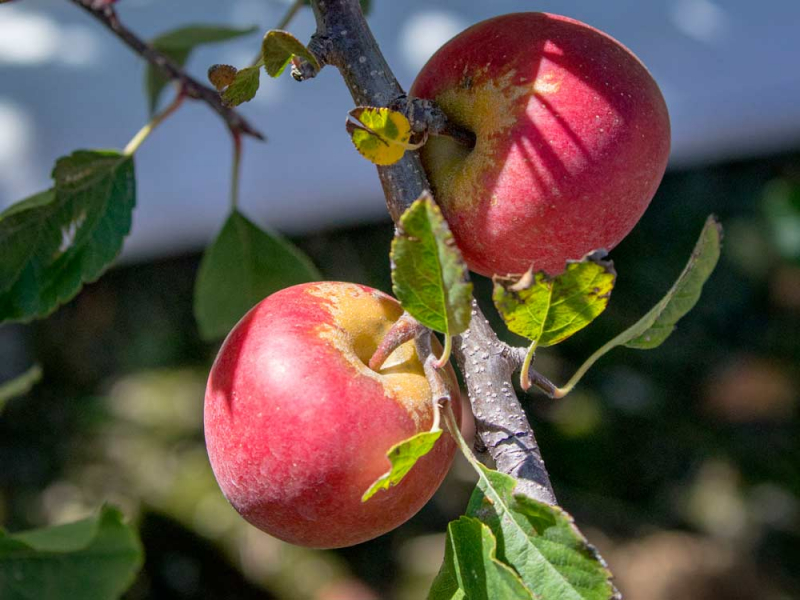
Better bone health 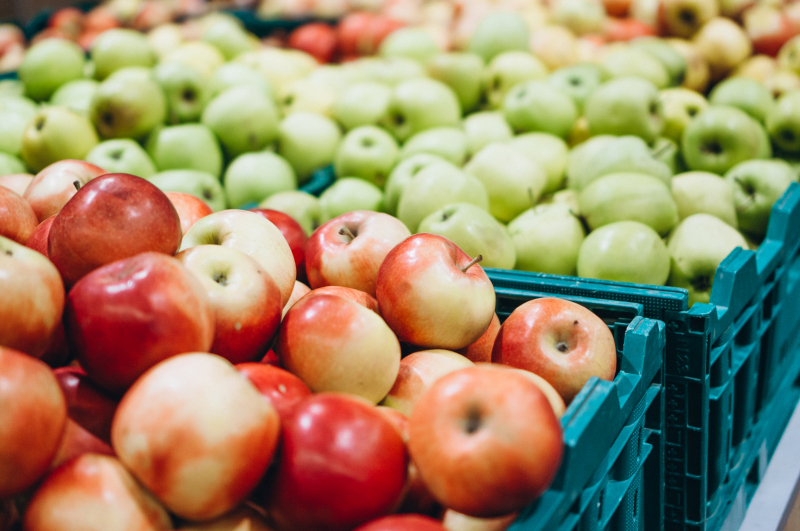
Better bone health































